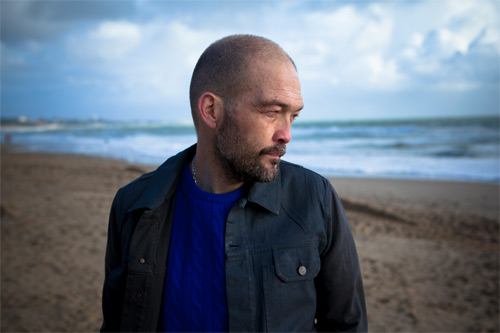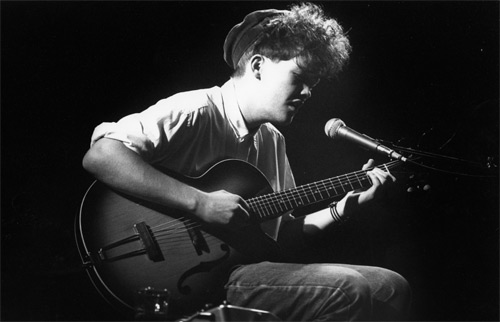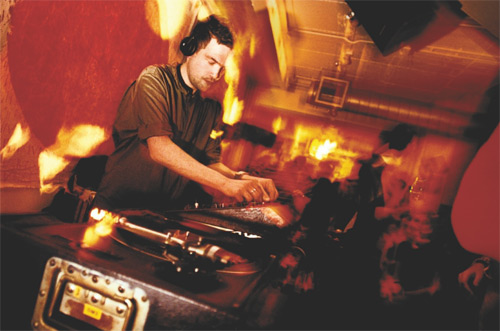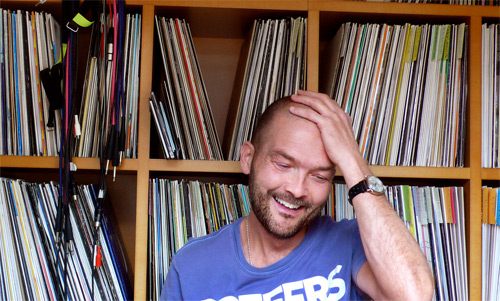Last March Ben Watt announced that his revered label Buzzin’ Fly would no longer release new material, concentrating on comprehensive anthologies instead. He also confirmed plans to pursue non-fiction writing, broadcasting, a separate label for Tracey Thorn (Strange Feeling), and his own long-planned solo music project. Then earlier this year, Watt confirmed a release date for Hendra; incredibly his first solo studio album for over 30 years.
With the album set to drop later this month, Defected’s Ben Lovett caught up with Watt to discuss this extremely personal new project.
Ben Watt’s new album, Hendra, has been on his mind for 30 years. It is, he says, a long overdue return to the promising beginnings of a young songwriter before other, bigger musical distractions came along. “In part, I wanted to reconnect with my 19-year-old self who had an emerging career as a folk-jazz songwriter in the early 1980s but who shelved those plans to work for 20 years with Tracey Thorn in Everything But The Girl and then run Buzzin’ Fly for another 10” he opens. “It felt like unfinished business. It has shadowed me for a long time. I knew I would have to confront it at some point.”
It was last March that Watt decided to de-activate Buzzin’ Fly, his high calibre deep house label of the past decade, and therefore officially shift his artistic focus. He had already started writing Hendra, finishing its songs in August, before recording throughout the autumn and mixing down over Christmas. “It’s a folk-rock record, with electronic edges” he clarifies. “I was getting burnt out with DJing and running the label [Buzzin’ Fly]. I needed to get back to words and songs, not just beats and other people’s music. First, I made space to finish a book – a portrait of my mum and dad’s marriage [Romany and Tom, recently published by Bloombsury]. Then I wanted to get back to my own music again – away from house and techno.”

Hendra’s absorbing, subaqueous fusion of guitar and electronica is perfectly illustrated by co-producers Bernard Butler and Ewan Pearson. Former Suede man Butler adds acoustic vim whilst Pearson, revered deep-dance shape-shifter, provides the sensitive background swell of synthesizers and plugged-in FX. It is a simple, subtle, tender mix of sounds working with, rather than against Watt’s honest vocals. The emphasis on ‘words and songs’ is strong throughout, Watt wholly delivering on the powerful promise of those early teenage reveries.

“I returned to the guitar after a long time but playing standard chords bored me. I ended up re-tuning...using ‘open tunings’ [altering the notes of strings – using new hand shapes to make chords, often with overlapping common notes]” Watt explains. “The result was I turned to Bernard, to add that edge. Ewan, meanwhile, has a foot in both techno and folk. His mum and dad listed to Fairport Convention. He can do banging acid but also things of great grace and beauty. I knew he’d get the record.”
Open tunings is about altering the notes of the strings, not to strum mindlessly with one hand, but so that new hand shapes are needed to make chords, often with overlapping common notes.
Still, Hendra remains a deeply personal exposition, driven by the sudden death of Watt’s half-sister Jennie from late-diagnosed lung cancer. “I was close to her; she died not long before I wrote the record” he says. “She had a tough life, and lived as a simple village shopkeeper in Somerset. At weekends, she used to get away to a little place in a road called Hendra. I never knew what it meant. I wondered if it was mythological or something. In the end I found out that it was an old Cornish word meaning ‘home’ or ‘farmstead’. It seemed perfect for the album. Odd, lyrical, but full of personal meaning....”
That’s not to say everything is downhearted. Watt tackles his album’s dominant themes of loss and disenchantment in inevitably sombre, contemplative mood but the clouds do break. Most notably on The Levels, this album’s glowing and ultimately uplifting keynote. The song features Pink Floyd legend David Gilmour on slide guitar and backing vocals. How did Watt manage that?
“We met at a party just before I started the album” he answers. “Unexpectedly he invited me to his home studio to hear his demos. I was taken aback...flattered. We got on. When I was recording The Levels I knew he would be perfect on it – that plangent style of his. He liked the song and we had it recorded in a matter of days. I never knew you could work with famous people so easily. No managers, no office. Just a couple of texts and it was done. Lovely really.”
How easy did Watt find it to maintain his vision of Hendra whilst working with so many prominent others? “I think everyone understood what I wanted very early” he remarks. “And I tried to pick sympathetic people – people who would ‘serve’ the project, not impose their personalities. This is the hallmark of great musicians. I remember working with Steve Gadd [the highly-regarded, New York-born session drummer] once. We started running through the song and it was 10 minutes before he did anything other than keep time on his hi-hat. He was just listening to the natural cadence of the song, of the rhythm I was playing, and only then did he add more drums. It was brilliant. The best musicians listen.”
Watt’s lengthy career is well chronicled. London-born, he began with solo folk-jazz recordings for indie imprint Cherry Red during the early 1980s (including 1983 debut album North Marine Drive) whilst forming alt-pop duo Everything But The Girl with his long-term partner Thorn (the pair have three children). His work with Thorn would take over, Everything But The Girl spawning nine studio albums across their reign (1984 to 1999), multiple Gold and Platinum discs, countless UK Top 40 hits and, in 1994, global hit single Missing. The song, included on album Amplified Heart, had been crisply remixed by Todd Terry, and Watt and Thorn wanted to release it as a single. The consequences were explosive. Missing, as house lament, was a huge success, scoring Top 10s all over the world whilst hitting number two in the US’ Billboard Hot 100 – and this, pre-EDM.

Watt and Thorn duly strengthened their ties to electronic music. The latter would record with Massive Attack and Deep Dish whilst Everything But The Girl’s 1996 and 1999 albums, Walking Wounded and Temperamental respectively, would tap everything from house to bass-y downbeat via drum & bass. Through all this, Watt was emerging as a credible dance producer and DJ. Everything But The Girl’s disbanding in 2000 marked Watt’s rapid rise within clubland. His seminal Lazy Dog club nights and compilations (alongside Jay Hannan) offered a fine line in soulful deep-dance, as did events at cult London clubs Neighbourhood and Cherry Jam, where he was part-owner. Similarly-vibed remixes of Sunshine Anderson and Sade shone, so too a fizzing mash-up of Sandy Rivera’s Soul Vision and ‘EBTG’ for Tracey In The Room in 2000 (an Ibiza classic) and then, in 2003, came the launch of Buzzin’ Fly. Over 10 years, Watt’s esteemed house imprint carved an impeccable deep house niche via the edgy, boundary-breaking releases of Jimpster, Justin Martin and Manoo, to name a few.
But times have changed. 51 now, Watt has an entirely re-assessed perspective on his craft. Song Young Man’s Game, included on Hendra, depicts an ageing DJ’s uncertainty about the future – does he try and cling to the noisy, neon, chemically-driven world that has sustained him for so long? Or does he accept that this world, this lifestyle, is starting to outpace him, and bow gracefully out? This sounds much like Watt’s own story.
But if the constant partying has worn Watt out then it’s not the entire motivation for his dramatic change of pace. Whatever the reasons, he’s not fazed by it. “Historically, I have always changed horses in mid-stream” he points out. “Everything But The Girl were well-known for trying new sounds. Tracey’s voice was a constant but the music often changed. I am not frightened of change. I just look for a vehicle with which to communicate with people. Folk, house, books, techno...I don’t really mind as long as I make a connection and people feel ‘yes, I have felt that too’.”

Does that mean the door to Buzzin’ Fly is still ever so slightly ajar? “People have been very accepting [about its cessation]. I think they acknowledged my reasons for moving on” Watt suggests. “We had 10 great years. We never compromised. Never put a record out for any other reason that we loved it. We have no plan to reactivate the label but if something comes along – perhaps a special project – we could do an occasional one-off. But really I’d like to see it as something that started honourably, then ended gracefully.
For the moment, Watt’s closest link to the dancefloor is his bi-monthly 6Mix for BBC 6Music – a broad sweep of folk, house, techno and vintage disco. “We live in a completely atomised musical world now, hundreds of micro scenes” he says. “There’s a lot of reverence for the past, but that’s not unusual. I look back to my early days – we were the generation that ignored the excesses of mid-70s stadium rock and, inspired by the angry fireworks of punk, looked further back into the 50s and early 60s for inspiration. Everything is new when you are young. Perhaps I moved out of the electronic scene because I was starting to feel a bit hemmed in. I needed new stimulation. That isn’t to say there aren’t good things happening on the electronic scene, but when I started to get asked to play the old Lazy Dog hits all over again I felt it was time to move on, respond to other creative urges and let other people play them.”
Frustratingly, Watt isn’t able to move on quite as quickly as he’d like this week. Visa issues have prevented him starting his American tour to promote Hendra. He is frantically scrambling to reschedule it. “I’m feeling pretty dejected” he confesses. “In spite of punctually jumping through every hoop and getting our work visas approved I’m stuck in a bureaucratic bottleneck and the US authorities, for whatever reason, have not delivered my passport and visa in time.”
Whilst he waits and reschedules, there are other things to occupy him – imminent releases on Strange Feeling, the label he runs with Thorn to release her output, and a new series of deep folk mixtapes online. Hendra arrives later this month on Unmade Road, a new Watt label for which there will naturally be other plans.
So what has Watt learnt about himself over this past, incredibly intense 12 months?: “Keep trying to do what feels instinctive. Trust those instincts” he muses. “What is it that Allen Ginsberg said? ‘First thought, best thought’. I don’t have any regrets. But you always feel you could have done something better. That is why we keep going.”
Words: Ben Lovett
Ben Watt’s new album Hendra is released by Unmade Road on 14 April.



